One of the greatest dietary showdowns is that of vegan vs. paleo. Which diet is healthier? Which is more natural? Can the paleo diet and a vegan diet coexist?
One of the most heated dietary debates is that of vegan vs paleo. You can find countless knock-down drag-out fights on every online social platform between die-hard members of each camp. But does this necessarily need to be a rivalry? Or can the two dietary approaches coexist? well, believe it or not there is such a thing as vegan paleo.
In the video for this post, I first asked vegan activist Gary Yourofsky his opinion on the paleo diet, so be sure to watch for his full answer, but here is my favorite part:
You can’t solve diseases with meat…you can’t solve any health issues with animal protein. It’s toxic to the human body. You can’t solve them with cholesterol, it’s toxic to the body. You can’t solve with huge amounts of fat. You can’t solve it with naturally occurring trans fatty acids, that’s not how you obtain health. Again, you might be lucky, but keep in mind that not everyone that worked in an asbestos factory got mesothelioma. You could get lucky, but lucky is not health.
Now for my own two cents on this matter, the thing I personally find interesting about this rivalry is the implicit belief that vegan and paleo have to be mutually exclusive. There are people who eat vegan paleo (see the resources below). Paleo is all about eating as our ancestors did, and there is a large body of studies and research that paints a surprisingly plant-based picture of our stereotypically meat-eating caveman forefathers. In his article , Human Ancestors were Nearly all Vegetarians, Robb Dunn states,
Although “Paleolithic” diets in diet books tend to be very meaty, reasonable minds disagree as to whether ancient, Paleolithic diets actually were. Fortunately, new research suggests answers to the question of what our ancestors ate. The resolutions come, in part, from considering the question of our diets in a broader evolutionary context. When we talk about “paleo” diets, we arbitrarily tend to start with one set of ancestors, our most recent ones. But why do we choose these particular ancestors as starting points? They do seem tough and admirable in a really strong five o’ clock shadow sort of way. But if we want to return to the diet our guts and bodies “evolved to deal with” (a concept that wrongly assumes our bodies are fine tuned by engineers rather than cobbled together by natural selection), perhaps we should also be looking our earlier ancestors. If you want to return to your ancestral diet, the one our ancestors ate when most of the features of our guts were evolving, you might reasonably eat what our ancestors spent the most time eating during the largest periods of the evolution of our guts, fruits, nuts, and vegetables—especially fungus-covered tropical leaves.
As a vegan, my main concern is animal rights. I’m primarily an ethical vegan, though I value all of the benefits of a vegan diet. Some people come to veganism for health explicitly and I fully support that. I don’t care what gets you here, just that you make it. And honestly, the health benefits of veganism often branch into deeper convictions as people learn more about animal issues.
For me, even if my ancestors ate nothing but meat and that was somehow the healthiest thing for me to eat, I’d still choose veganism. Fortunately, as it is, I get to eat in a way that doesn’t involve the blood and suffering of other being and is healthy and ancestrally sound, or as much as you can be in this day in age. But if you want to eat paleo vegan or junk food vegan or any other variation, I say, go for it. Do what works for you, as long as it’s not encroaching on the rights and lives of others.
So now that you’ve heard Gary’s take on paleo and my quick 2 cents, I’d love to hear what you think. Let me know in the comments!
— Emily Moran Barwick


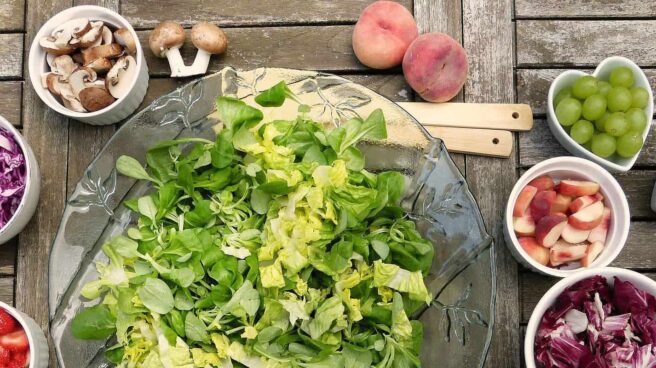
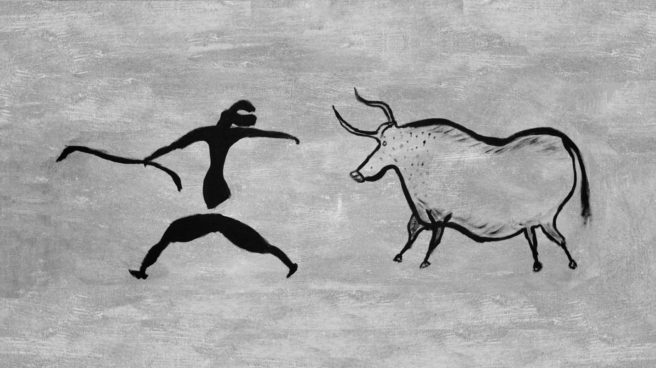
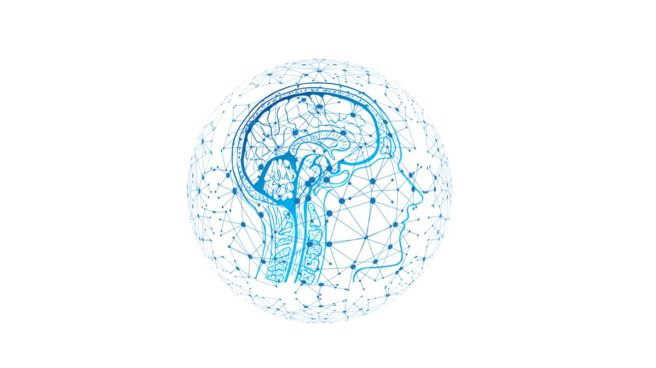
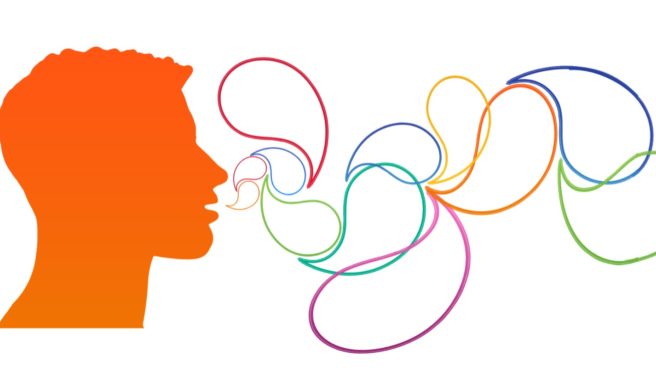
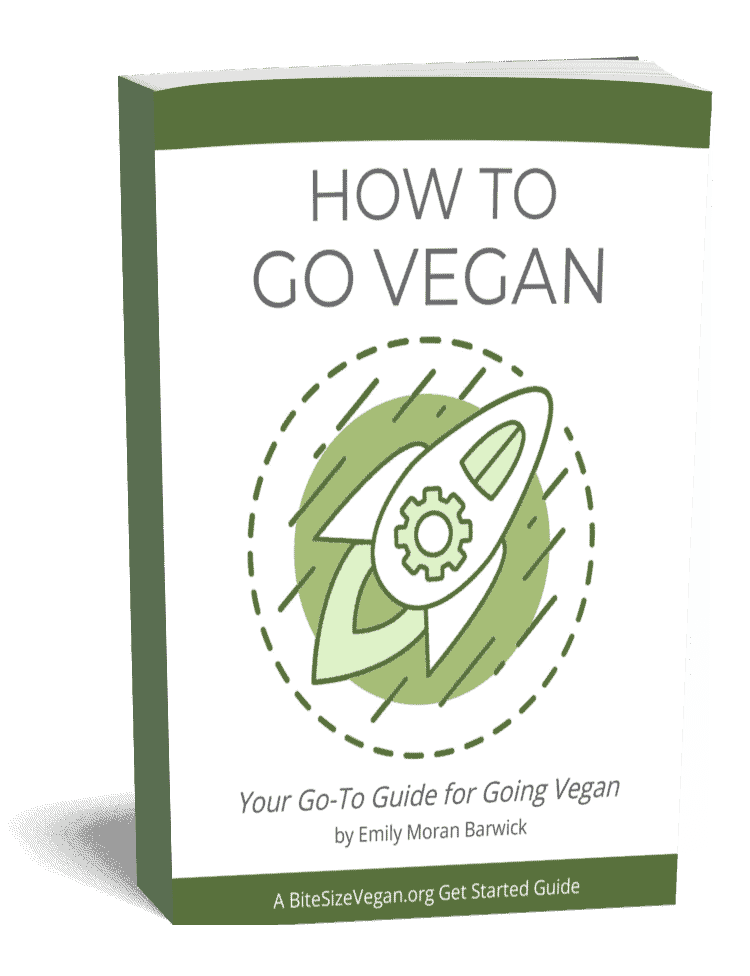
Great video that I will pass along!
Regarding not caring how a person becomes vegan, I do, because it seems many who do not become vegan for ethical reasons do not stay vegan, as proof by the recent outpouring of “ex-vegans”.
Just becoming vegan is not good enough. One needs to stay vegan.
When some people say that vegan diet made them sick, they may be right, but it was the wrong type of vegan diet for their bodies. So those that become vegan purely because of health reasons I would strongly suggest they see a vegan nutritionist so they will not become ex-vegans. Ethical vegans will find a way to stay vegan because of our strong convictions. Vegans for health reasons can EASILY be persuaded to change to another diet as shown by many of the ex-vegans.
Also, many of the vegans for health reasons are that way because a vegan diet is “trendy and cool”.
If one becomes vegan for health reasons only, I think an ethical vegan needs to persuade them to stay vegan for ethical reasons, because that increases their chances HUGELY of staying vegan for life.
You know something? I just made a huge mistake in my comment. Let me correct it now: There is no such thing as a person who is vegan for health reasons only. They are simply people who don’t eat animal products–they are just strict vegetarians. Vegans do not eat, wear, or use animal products. So the ONLY vegan is an ethical vegan.
Vegan by definition is an ethical social justice cause–NOT a health/diet cause. Getting healthy benefits from veganism is an added bonus result of the ethical eating “part” of veganism.
That’s another huge mistake we vegans are making by assuming when people say they are vegan they also are not wearing or using animals either, as most people in the world now define veganism as only a diet–grossly reducing the meaning of what it means to be vegan.
Sigh, we have a looooong way to go in educating the world on veganism.
Lorrie,
I see where you’re coming from, and I agree with many parts, but I’d like to offer some counterpoints:
1. I became pesco-vegetarian for health reasons, then it led to being vegetarian, then my diet became vegan.
2. I never thought it was “cool” what people did to animals, but over time concerns for AR grew and increased
3. I think it is, at the very least a tactical mistake to tell people they can’t go vegan for health reasons or that they are not officially vegan if they do (see also point number 5). Why not be more welcoming whatever people’s reasons are, and then try to help with information on how to craft diet choices so it’s enjoyable and sustainable, and yes, I agree, also give them information when/as much sa they are ready, about ethics, including animal suffering and also environmental issues (which are in a way part of the same larger area of Ethical considerations)
4. You’re right that caring about AR/ethics increases their chances of staying vegan for life…but you know what else does? Finding a diet that meets their health needs so they can stick with it, ALSO increases (hugely) their chances of staying vegan for life
5. I don’t think we can define for eveyrone what the term vegan means. For some it includes honey, for others, not. For many people, by the way, it goes from “includes honey” to (later in time) not including honey. Telling them they get a “bad grade” whiel they have honey is not the best way to win people over. Tell them about downsides of eating honey? Yes. But tell them “well then, you’re NOT a vegan!” is not going to be helpful, I think, it just says “I define what gets called vegan, you’re not In The Club”
And the same for someone who excluces all animal products from their diet but still wears (or is wearing out old items they purchased beefore they were vegan) say leather…or who is very poor and dumpster dives for something that has leather etc.
There are many definitions of vegan, but at least two, by Merriam Webster, which agrees with my two definitions, one definition is a person whose diet has no animal products, the second definition is stronger, also not using animal products. Both definitions are in common use. I sometimes use the phrase “vegan diet” to clarify the former.
I have moved over time to things like non-leather belts, non-leather sandals etc from earlier having a vegan diet, but if I had been surrounded by people saying “you’re not a real vegan!” it would have been a big turn off I have to say.
No one is 100% vegan. If there was a tiny little bit of leather inside a car you purchased hidden inside that you didn’t know about or inside material, do we get to take away your “vegan card”? I don’t think that’s fair or reasonable or good tactics…And as for 100% vegan, if there is a tiny bit of leather square on jeans (and you remove that leather square) is that non-vegan, versus buying a huge house built by 10 people all munching hamburgers? Is the second choice really more vegan than the first? I don’t think so. Just do the best you can, and in a respectful, polite, supportive way, encourage others, informing ourselves while we inform others, is that best, and I think most practicadl and also strategicadlly smart way to go IMO.
I know veganism isn’t about being perfect. It’s about doing the best you can, but I did not make up the word Vegan. The Vegan Animal Society did in Europe. THEY are the ones who defined veganism as I stated. If we decide to start changing the definition of a word, we might as well throw out dictionaries and define ANY word any way we want. This makes for a very confusing way to communicate with people and I believe is one of the main reasons why veganism is not really growing. It may seem like we have grown as a movement but we really have not much. We should talk about veganism honestly and truthfully. It’s telling people they can be vegan in so many erroneous ways is what is confusing people.
To add more about the definition of the word vegan. I think it’s best to stick with what the group who coined the word vegan in the first place, The Vegan Society, because as I said in my first comment, veganism by some definitions, has been watered down now to just being a diet and nothing more. We need to stick to the original way it was defined. If we don’t, it’ll keep getting more and more watered down–as it is becoming already and I guarantee you if this continues to happen, the vegan social justice cause as a movement will die. Truth and honesty is going to set the animals free, not a watered down version of veganism.
Lorrie,
I’m not advocating that we “throw out dictionaries” – I was actually quoting from a dictionary…I understand you don’t want things to be “watered down” and assure you I do not want them watered down either :-)
It *would* indeed be “watering down” if we *replaced* one concept with another…replacing the broader meaning, with the more narrow meaning…but neither I, nor most if not all readers, advocate that at all….we’re *not* for doing away with the meaning..
We’re not for doing away with the goal, either, at least I’m not.
I’m all for the goal of not using any animal products (that’s why my belts are non-leather for example) So we agree there.
The main two issues are two.
First, most people who have heard of the word use vegan to also mean “vegan diet” and if also the Dictionary itself uses it, then that’s, de facto, one of the two meanings of the term, whether I like it or not, whether you like it or not, it’s one of the two, de facto, “per usage” two meanings of the term..and to be effective activists we need to at least understand that others use it. Now you might argue, “it might be de facto one of the two meanings, but we should work hard to change that, so there is only one meaning”
I think it’s not likely to succeed in the foresable future, but again, it’s *not* about watering anything down. It’s about using terms people undertstand and also (the second even bigger issue), not turning people off.
Instead of “you’re not vegan” just say “oh, you mean you have a vegan diet, that’s what you mean, right? Well that’s cool, that’s a great step…but have you also considered not using animal products outside your food? Because that hurts animal too…”
See? There’s no watering down; we still advocate the exact same thing. But instead of turning people way off by telling them “You are officially not vegan! you are not allowed to use that word when you mean only diet”, instead of that, we encourage them to keep going further in the right direction.
The movement doesn’t die, on the contrary, it expands, since we’re grounded in reality (the reality of how the term is used, so people undertand us) … plus, we’re not in the funny position fo saying “I know that’s what many dictionaries including Marriam Webster write, but some society you haven’t heard of created that term and way back then it used to mean…” and they tune us out and the message gets lost…
So for these reasons, I respectfully disagree with the idea that the only way to be effective, is that we have to insist that others never use the word ‘vegan’ when they mean their diet only, for us to be effective.
Instead, to be effective we have to understand what they mean, and be friendly and encouraging, and then, to lovingly encourage them to go from “vegan diet” to not using animal products at all, not even outside their diet…
Mind you I’m not telling you not to use the term that way you use it; I’m only talking about the diversity of how people use the term, and also, my thoughts on effective outreach. We are disagreeing about tactics only, at most, it seems to me. We agree on the goal of not watering down and agree on the importance of encouraging people to avoid animal products outside as well as inside their diet :-)
Gary is wrong saying it is the same old diet because – as he later stated – they don’t consume dairy with it. Personally,I disagree with eating that much animal protein,but nor do I agree with the vegan diet.Both are the opposite extremes of each other, although both agree on no dairy.
Lorrie,you say people who fail on vegan diets are those who do it for health reasons,so if anything, I would imagine a vegan who does it for that reason would be eating healthily on it and not junk in the same way that an ethical vegan would, so if someone is developing health problems despite everything they are do, why should they continue that diet. Perhaps,then there are ethical vegans who get sick from it and still stick to it because of animal rights reasons…..which would demonstrate then, that it isn’t always as healthy as it is cracked up to be.
It would seem that many vegans don’t like to believe that some people are simply not suited to a vegan diet and that it can make them sick.The fact that many have to take so many supplements does not make me think it is a healthy diet. What of people who are allergic to beans,soya,nuts or gluten?
Meat consumption is constantly being touted as unhealthy by vegans and how people felt health benefits by going vegan. Have you considered that maybe it isn’t cutting out the meat that is the issue but consuming more veg or maybe they were eating too much meat or processed meat. A small amount of quality meat in a balanced diet is not bad for you. Also,you need a certain amount of cholestorol in your diet. People did not have all these problems years ago when they still ate meat as they did not each as much as they do nowadays.
Super commentary Emily…there is no real contradiction, like you said, though it’s also true that people find it easy to embrace “paleo” because it gives a “cool” name to a diet which is not different, or only in smaller easier ways a “change” fromt their current diet.
BTW the first link is not working…it’s trying to find the Sci Amer article inside BiteSizeVegan.org (I did read that article some months back, it’s good) just the url got misformatted just FYI..
And thanks for the links from NutritionFacts, a great website..”Will The Real Paleo Diet Please Stand Up?” which is one of the four items that show up in the keyword-search link you put as your last link is great..pointing out real ‘paleo’ type diets so to speak had a lot more in common with modern day whole food plan based vegan diets than with the modern so called “Paleo”..they do it by cadreful nutritional analysis…
Meanwhile “the real paleo diet” points out ” It’s estimated that 200,000 years ago we got 600mg of vitamin C a day. That’s the amount of vitamin C found in 10 oranges. Every day we appear to have consumed the amount of vitamin E found in 2 cups of nuts, the amount of fiber found in 12 bowls of oatmeal, and the amount of calcium found in 5 cups of collard greens. They weren’t milking mammoths–that came in part from all the wild greens they foraged.” they had even more fiber than vegan, if anything it says “vegans need to go even more hardcore than we are today” ;-)
General thoughts to share with other readers:
I believe in “Naturalistic living” personally. It’s not as cool sounding a word as “Paleo” but shares some of the *good* parts that *some* people have in mind when they use the term: question modern day practices. Don’t abandon them all, but question each one, and make an informed decision. Second, pay attention to your body. What does all this mean?
To me it means things like: Question the high speed, high stress, overwork life. It means sleep when you’re tired. Consider not owning a TV, or not buying a house, or having kids…make up your own mind, don’t let society make it for you, and question Consumerism.
It means meditation for quieting the mind. It means not beating up on yourself when it is very hard to make this list of changes, be gentle with yourself and do the best you can but don’t stress over it too much.
Question alcohol and tobacco and drugs. But don’t just grab on to any touchy feely “sounds good” thing that calls itself “alternative medicine”…read and reserach and inform yourself…some mainstream medicine things are good, others questionable, other bad. Same with “alternative”.
I could add to the list above but won’t go much deeper other than saying you do these things from that philosophical point, then you also come to question things that many “paleos” correcdtly and rightly question and even avoid: refined grains, refined sugars etc. Doing all this makes sense…doing all this does not mean you need to eat any animal product though! In fact the health studies show we should avoid them, too.. NutritionFacts has a ton of those studies with the full citations and original articles (scientific studies) mentioned by name.
wow thanks for the boat load of extras! love this :) i’ll look into that link issue too- thank you for the notice.
Another study to share w/”paleo” friends: Latest scientific study about “PALEO” diet: not only carbs, but that it was not meat but cooked carbs that expanded BRAIN SIZE
Study says Carbs Were A Brain Food For Our Ancient Ancestors
Darlene TverdohlebAug 19, 2015 08:23 PM EDT
It is well known today that carbohydrates are a rich source of energy. Several recent studies have suggested we should cut on carbs to lose weight. However, for our ancient ancestors, gathering carbohydrates for their energy could have been the trigger to the evolution of human brain.
A group of British researchers, by looking at past work on human evolution, had the intuition that once ancient humans learned to cook, by using starchy foods like root vegetables or grasses they got access to a rich source of calorie that fueled the evolution of the human brain.
It was previously suggested that the early brain began developing and growing in volume at least 2.5 million years ago. Researchers studying Paleolithic diets believed that this process began after early humans learned to butcher and processed meat with stone tools. However, a group of British researchers came to a different conclusion. According to Mark Thomas, an evolutionary geneticist at University College London, the brain truly accelerated in increasing its size only around 800,000 years ago.
…In a new paper published in The Quarterly Review of Biology, Thomas and colleagues sustain their hypothesis that the brain suddenly began evolving faster because our ancient ancestors discovered a better brain food. Thomas says that at that point, human populations started to consume more carbs-rich foods and developed the use of fire. Those two improvements “were critical to the expansion of the brain.”
..Carbs, the starches, are an ideal brain food, according to Thomas, since our human brains have an absolute requirement for glucose. And a diet rich in carbs allows the body to not spend extra energy converting other nutrients into glucose to feed the braina.
https://www.sciencetimes.com/articles/7133/20150819/study-shows-that-carbs-were-a-brain-food-four-our-ancient-ancestors.htm
Also,not everyone in the world can be vegan.Not enough land and some people live in parts of the world where they can’t grow fruit and veg.Such as Inuits.
As for environmental reasons pointed out.I always find people always give extreme examples.Such as pro lifers going on about late term abortions when most are carried out early or vegans going on about people consuming factory farmed meat,when there are alternatives.
Anyway, someone who consume local grass fed meat – which does not rely on soya feed from abroad – probably has less of an environmental impact than a vegan who relies on lots of produce from abroad. Okay,I know a meat eater who also relies on produce from abroad can also have that impact,but making the contrast between local grown meat eater and vegan since it is vegans who like to claim the moral high ground here and point out how meat eaters always contribute more to environmental damage they cause by their diet
Hi there. Thank you so much for the comment. Regarding land, it’s actually things like grass-fed meat for which we do not have adequate land. Check out this video particularly the area on land use where you’ll find cited statistics including:
1.5 acres can produce 37,000 pounds of plant-based food and only 375 pounds of meat.
The land required to feed 1 vegan for 1 year is 1/6th acre. It’s 3 times as much for a vegetarian and 18 times as much for a meat-eater.
You can grow 15 times more protein on any given area of land with plants versus animals.
136 million rainforest acres have been cleared for animal agriculture with 1-2 acres of rainforest are cleared every second.
In fact, animal agriculture is responsible for up to 91 percent of Amazon Rainforest destruction.
A single quarter-pounder burger takes 55 square feet of rainforest to produce.
Also, for a case study on the affects of grassfed cattle on a country, see: Greenpeace, Beltra, Finari, and Lineair. “Slaughtering the Amazon.” Greenpeace International, July 2009. https://www.greenpeace.org/international/en/publications/reports/slaughtering-the-amazon/.